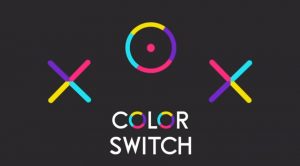Privacy & Ethics
One of the games I have on my phone is Color Switch, a generally easy but incredibly frustrating game that basically involves touching the screen at the right time. I don’t have it connected to any social media account, so it doesn’t post on my behalf without my knowledge. I thought that this probably meant that it had very few permissions and very little access to the data on my phone – an assumption I found out was radically incorrect when I looked up the user agreement.
This app, while only a seemingly harmless game, has access to my photo gallery and other media as well as my phone’s contacts and call identity; it also has permission to add to and delete from my USB memory. All of these can presumably have a related purpose. The game needs to be able to save its own data, and delete said data if I request it, which would require access to my USB memory. Maybe I might also want to send information about the game and my results to someone I know, necessitating that the game be able to access my contacts. But an issue arises in other cases. What if, for some reason, the game and those who created it wanted to delete other random data from my USB memory? Since it technically has access to that, and I granted it that access, the game and its creators could theoretically delete things as they desired. While I am dubious that this could ever happen, the possibility (and also technical legality) of it is quite interesting.
I agreed to this when I downloaded the game and pressed “Agree” on the permissions page. So did the other millions of users who have downloaded the same game. Finding what permissions we collectively granted isn’t difficult, either; they are easily available on the Play Store. Even so, it seems like the ethical solution would be to allow users to opt out of data collection if they so wished. Not allowing exclusion from such a potentially damaging data collection regime is slimy at best and straight-up unethical at worst.
Luckily, I’ve never been put in the position of those like Snowden and the hackers responsible for the Panama Papers. To be honest, I’m not sure what I would do in those cases, knowing that my quality of life and safety would be on the line if I chose to expose the misdoings of those in authority positions. I would like to think that I would believe that the greater good and ethics is worth more than my one individual life, but since I’ve never been in that situation, I can’t be so sure. I don’t have any ethical qualms, however, with prosecuting those whose misdoings have been discovered and published through hacking. Illegal things are illegal, regardless of whether they were discovered legally or not. Those who hacked for the information should also be prosecuted, but no one should be excused from their consequences just because of the way in which their illegal actions were found out. If that were the case, then people could “hire” hackers to release information so that they wouldn’t have to face consequences, a certainly negative unintended side effect.

 Next Post
Next Post
I think the option to opt out of data collection is a very good idea, but is a bit problematic given that it would probably have to be substituted with an actual cash payment. What might be a better alternative would be if term & condition pages included a bulleted summery of all of the data that will be collected at the very top of the page. Part of why data collection is such a big controversy has to do with it being something so shrouded in mystery (for lack of better phrasing), which makes the data collection seem more suspect (“if you aren’t doing anything wrong then why are you trying to hide it?” kind of of deal).
It’s pretty weird that the app has permission to delete data from your phone. Something I’ve been thinking about during this exercise is what happens if the app malfunctions, and data accidentally gets deleted. It seems unlikely that the app would do this intentionally, but it’s worrisome that this is a possibility. I also agree that although it’s risky for hackers to release data it definitely is a group good over individual good situation.
I like the idea of opting out of data collection, though I imagine companies would hide that option in such a way that most users would not even know it is there. If they are willing to hide that they are collecting your data in their terms and conditions, then they are almost certainly willing to hide the option to protect your data.
Thanks for the post!